The Comprehensive Guide to Packaging Machinery
In modern society, packaging machinery has gained well-deserved recognition for its critical role in various industries. Across a diverse spectrum of sectors, including food and beverages, cosmetics, pharmaceuticals, and electronic product manufacturing, packaging machines have developed into an important part of modern production lines.
The importance of packaging machinery lies not only in enhancing efficiency and cost savings but also in its indispensable role in preserving product quality and safety. Furthermore, packaging machinery continuously evolves to adapt to the ever-changing demands of modern industry.
This article will delve into the types of packaging machinery, their applications, and how they bring significant benefits to businesses. In addition, it will also focus on emerging trends in the packaging machinery industry.
Basic Knowledge of Packaging Machinery
What is Packaging Machinery
Packaging machinery is designed to perform a variety of tasks related to product packaging. These tasks include packaging products, sealing packages, applying labels, and efficiently handling packaging materials.
The primary purpose of packaging machinery is to ensure that products are securely and effectively prepared for distribution. In modern production, packaging machinery plays a vital role in coordinating and simplifying these tasks, making the entire process of packaging more efficient.
Primary Applications
Packaging machinery is used in a wide range of industries, reflecting its versatility from packaging and sealing products to labeling and managing packaging materials. At the core of these functions are maintaining product quality, facilitating efficient logistics, and creating a compelling brand image.
To illustrate, in the food industry, packaging machinery safeguards the freshness and purity of perishable products, prolonging their shelf life and preserving their quality by preventing contamination. Similarly, in the pharmaceutical sector, it upholds the integrity of medications, strictly adhering to stringent hygiene standards.
In essence, packaging machinery is the guardian of the product from the manufacturing floor to the hands of the consumer. It ensures that the final product arrives safely to consumers.
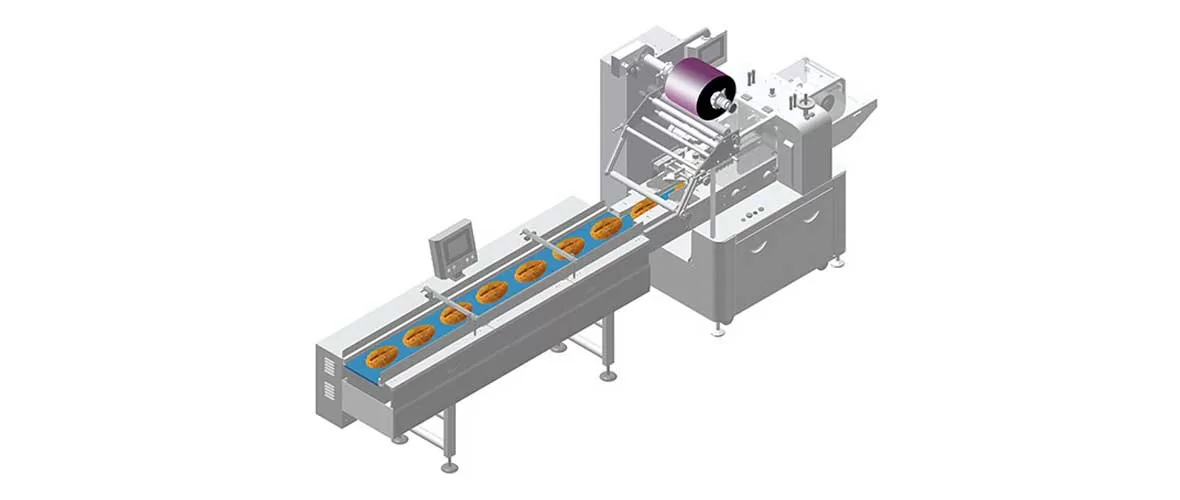
Various Types of Packaging Machinery
The world of packaging machinery is as diverse as the industries it serves, with a variety of machine types available, each designed to meet specific production requirements. Ruipuhua’s flow wrappers are mainly divided into three categories:
Automatic Packaging Machines
Automatic packaging machines stand as the workhorses of large-scale manufacturing operations. Known for their superior automation capabilities, these machines can independently perform a wide range of tasks, including packaging, sealing, and labeling.
Their ability to operate autonomously not only reduces labor costs but also significantly increases production speeds. Therefore, they are the first choice for industries that prioritize high-volume production.
In sectors where efficiency and precision are important, such as the food and beverage industry, automatic packaging machines ensure that products are efficiently packaged and professionally presented.
Semi-Automatic Packaging Machines
Semi-automatic packaging machines strike a balance between automation and human intervention. They are particularly suitable for medium-scale production settings, where the benefits of automation are sought without entirely relinquishing human control.
Within these systems, operators take on a more hands-on role, overseeing and fine-tuning the packaging process. In industries where customization and adaptability are paramount, this level of human involvement is invaluable.
Packaging Lines
Packaging lines epitomize the harmonious coordination of packaging tasks. Comprising an array of packaging machinery, including filling machines, sealing devices, and labeling equipment, packaging lines excel in high-production environments.
They facilitate the efficient execution of a wide range of packaging tasks, from product containment to label application, all within a single, synchronized process.
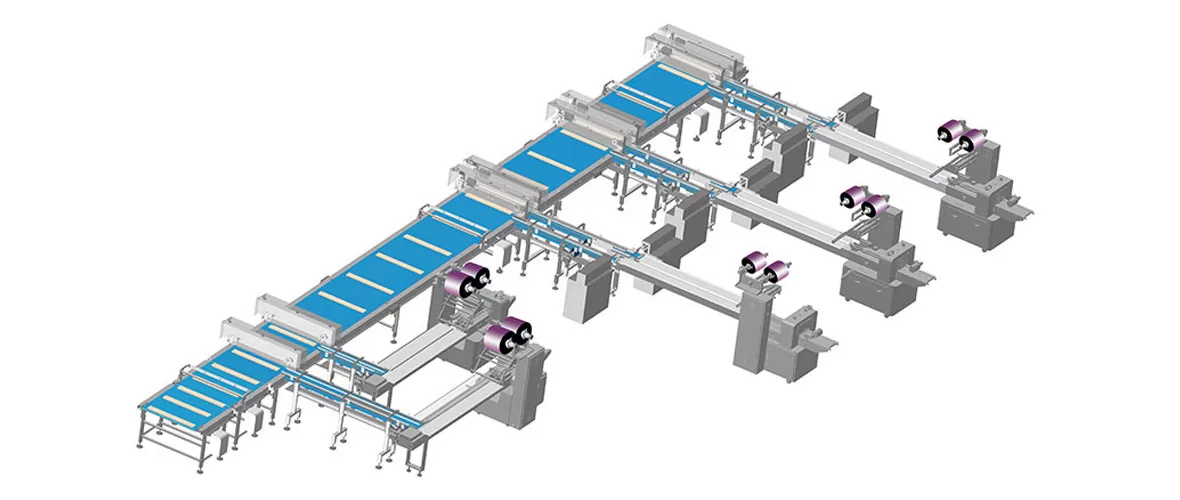
How Businesses Benefit from Packaging Machinery
Packaging machinery is not just a set of mechanical tools but a transformative force that can greatly benefit businesses across industries. Here, we reveal how businesses can harness the power of packaging machinery to their advantage.
Improve Production Efficiency
One of the remarkable benefits of packaging machinery is its ability to accelerate the production process and boost output. By precisely and swiftly packaging products, sealing containers, and applying labels, they simplify the production process.
Furthermore, they can tirelessly work without interruption, ensuring a consistent output rate that manual labor cannot compare to. With quicker production cycles, businesses can respond to market demands more promptly and simultaneously save on labor costs as they decrease.
Ensure Product Quality
Product integrity is a fundamental aspect of any business’s reputation and customer satisfaction. Packaging machinery plays a key role in maintaining this integrity by carefully controlling and maintaining product quality.
By accurately measuring and controlling the quantity of product in each package, ensuring effective sealing to prevent contamination, and handling products precisely to prevent damage, packaging machinery serves as a guardian of product quality.
Cost Reduction and Waste Minimization
Efficiency involves not only speed and accuracy but also cost. Packaging machinery can reduce packaging material expenses because it can accurately dispense the right amount of packaging material for each product.
Additionally, packaging machinery excels at minimizing material waste through a variety of mechanisms. It handles materials carefully, preventing spills and ensuring precise cutting and sealing every time. The precision of packaging machinery means less wasted material, contributing to cost-effectiveness and environmental sustainability.
Customization and Adaptability
In today’s dynamic market, where meeting the demand for customization and product diversification is crucial, packaging machinery emerges as a flexible solution that enables businesses to adapt seamlessly.
These versatile machines excel at adapting to a wide range of product sizes, shapes, and material variations, and can be fine-tuned to meet precise requirements. This adaptability is invaluable in industries where product variety and customization are key drivers of success.
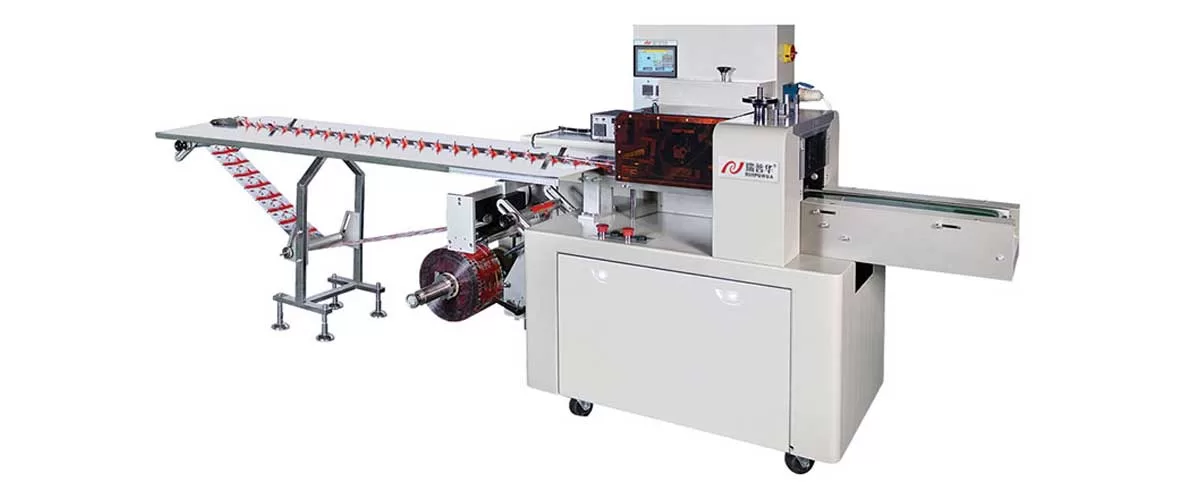
Choosing the Right Packaging Machinery for Your Business
Choosing the right packaging machinery is a crucial decision for businesses across diverse industries. In order to make an informed decision, businesses need to carefully evaluate their precise requirements against the capabilities offered by the wide range of available packaging machinery. Here’s a guide on how businesses can navigate this critical process.
1. Assess Your Product
Begin by assessing the type of products you manufacture. Consider its size, shape, and any unique attributes that might affect the packaging process. For example, delicate or fragile items may require special handling and protective packaging. Understanding the characteristics of your product is critical to determining which type of packaging machinery will best suit your needs.
2. Define Production Volume
Production volume is a crucial factor in selecting packaging machinery. High-speed and fully automated packaging machines are ideal for industries with large production volumes, while smaller-scale operations may benefit from semi-automatic packaging machinery. It’s crucial to choose equipment that meets your production needs without overly consuming resources.
3. Consider Material and Packaging Requirements
Different products may require specific packaging materials. For example, the food industry often utilizes packaging that provides a barrier against moisture and contaminants. It’s crucial to consider the material compatibility and requirements, such as seal strength or the need for vacuum-sealed packaging. Make sure the machinery you choose can work with materials that are critical to the safety and quality of your product.
4. Automation Level
Packaging machinery comes in various degrees of automation, ranging from fully automatic to semi-automatic. The level of automation should align with your production requirements and budget. Fully automatic machines reduce labor costs and increase speed but require a significant initial investment. In contrast, semi-automatic machines offer more control but require some human intervention.
5. Adaptability
Choose machinery that is adaptable to changes in product specifications or packaging requirements. The ability to adjust settings for different product sizes or packaging materials is invaluable in industries where variety and customization are essential.
In conclusion, choosing the right packaging machinery is a multifaceted process that requires careful consideration of your product, production volume, materials, and automation needs. Making the right choice ensures that your packaging process runs efficiently and cost-effectively, contributing to the overall success of your business.
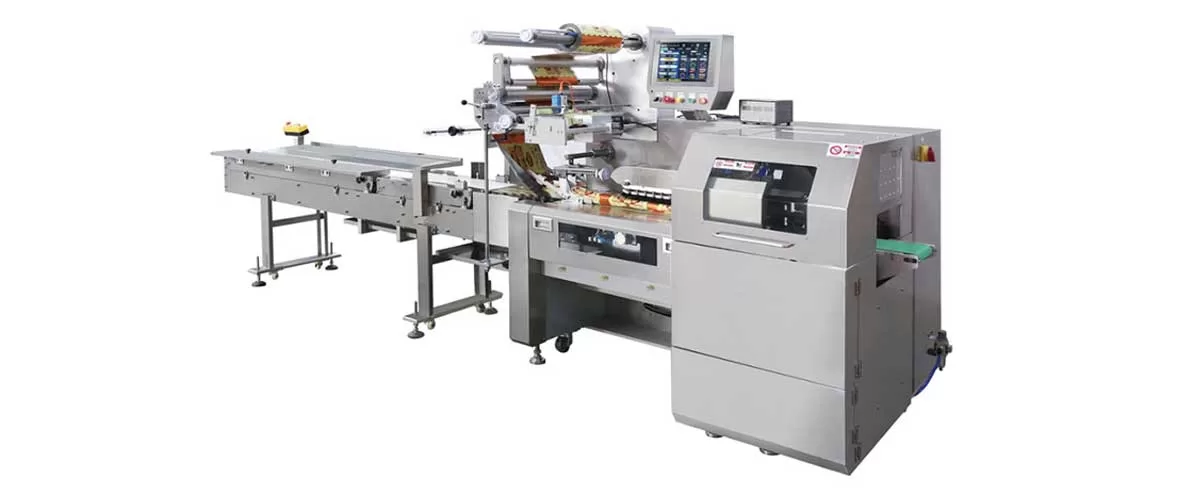
Emerging Trends in Packaging Machinery
Driven by changing consumer preferences, environmental awareness, and breakthrough technological advances, the packaging machinery industry is in a state of constant development. Here, we explore some noteworthy trends in packaging machinery.
Sustainability and Eco-Friendly Packaging
Sustainability is receiving increasing attention, and packaging machinery has an important role to play in supporting eco-friendly packaging trends. These packaging machines aim to minimize material waste by employing precision cutting and measuring techniques, promoting the use of recyclable materials, and enhancing energy efficiency.
For example, in the field of snack food packaging, modern packaging machinery can use thinner and recyclable films, reducing the use of plastic and helping to provide more sustainable packaging solutions.
Digitization and Automation
The impact of digital and automation technologies is expected to revolutionize the packaging machinery industry. Anticipated advancements encompass predictive maintenance, intelligent control systems, and remote monitoring capabilities.
These innovations not only increase the efficiency of packaging machinery but also provide real-time data insights, enhance quality control, and ensure smoother operations.
Consumer preferences are becoming increasingly diverse, requiring packaging machinery to be more versatile and customizable. Ruipuhua offers a variety of packaging equipment that can be easily adapted to specific product requirements, packaging sizes, and shapes.
Conclusion
Our exploration of the world of packaging machinery reveals these finely crafted machines are an important part of contemporary manufacturing. Their importance, diverse applications, and multifaceted advantages for businesses underline their key role in the industry.
From expediting production processes to preserving product quality and minimizing costs, packaging machinery has a big impact on businesses in many industries. When you choose the right machinery that suits your specific needs, it becomes even more valuable.
The future of packaging machinery promises exciting developments in sustainability and digital integration. As the world increasingly adopts environmentally responsible packaging and automation, packaging machinery will continue to play an important role in shaping the way products are prepared and presented to consumers.
-
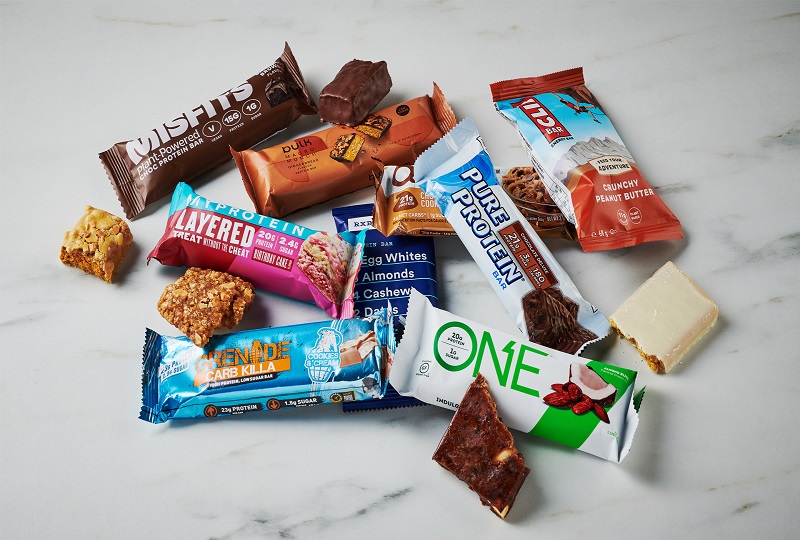 01
01Further Discussion About Protein Bar Packing Machinery
27-02-2024 -
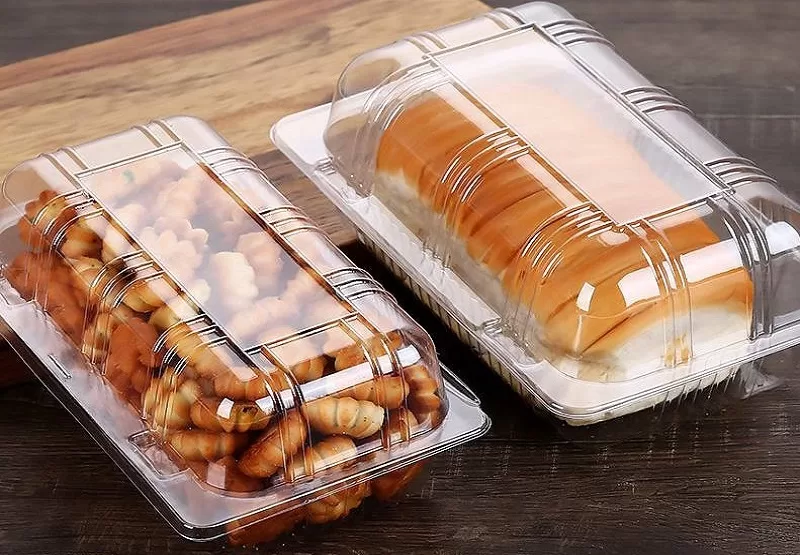 02
02Sustain The Best Crispy With Automatic Packaging Machines
29-01-2024 -
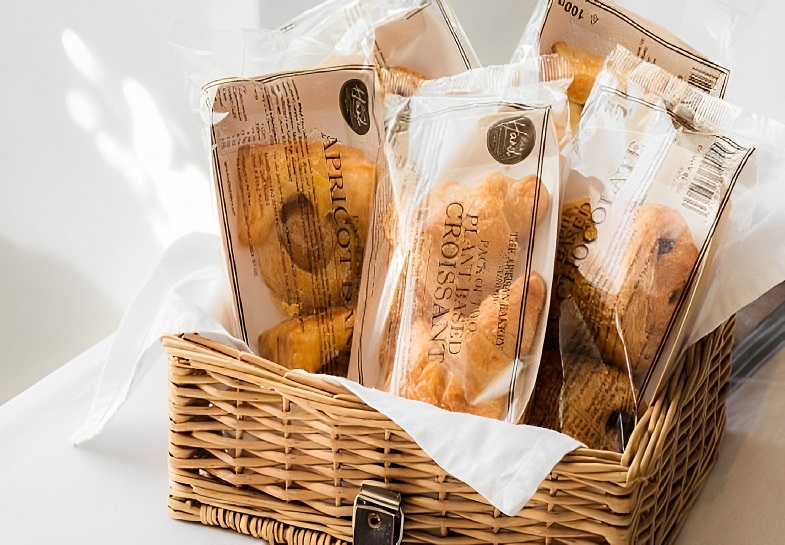 03
03Bread Packing Machine For Bakery Business
19-01-2024 -
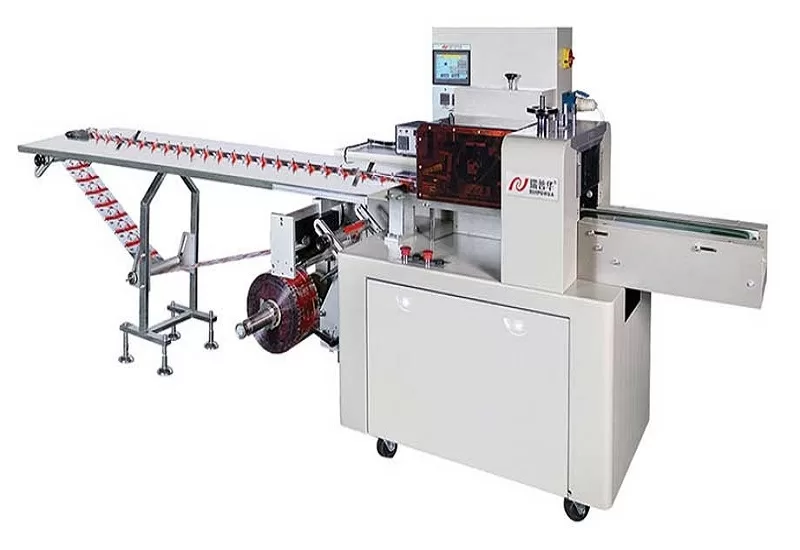 04
04How Flow Wrappers Are Adapting to Changing Trends
01-11-2023 -
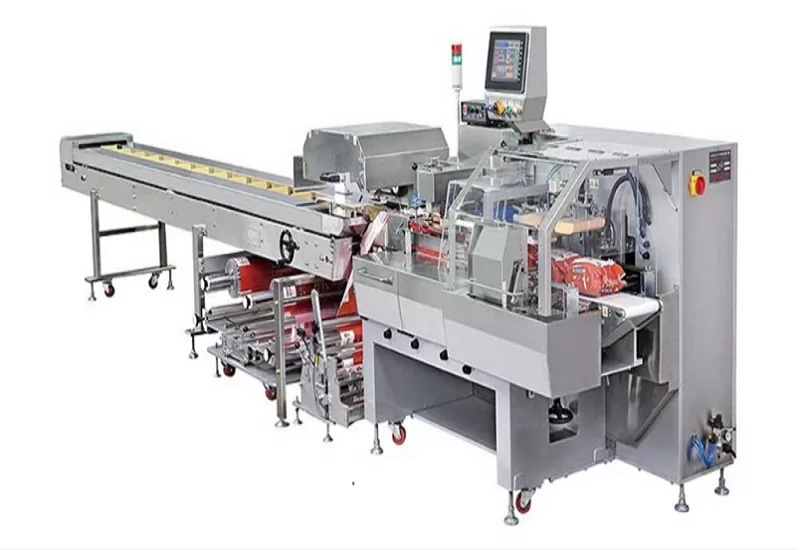 05
05The Comprehensive Guide to Packaging Machinery
31-10-2023 -
 06
06Automatic Cookie Packaging System Performance
01-09-2023 -
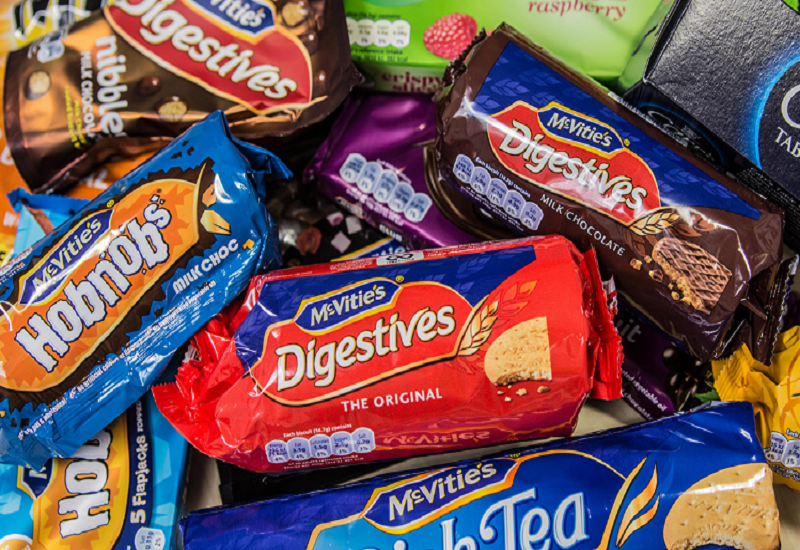 07
07Streamlining Biscuit Packaging with Multipack Biscuit Packaging Machines
25-08-2023 -
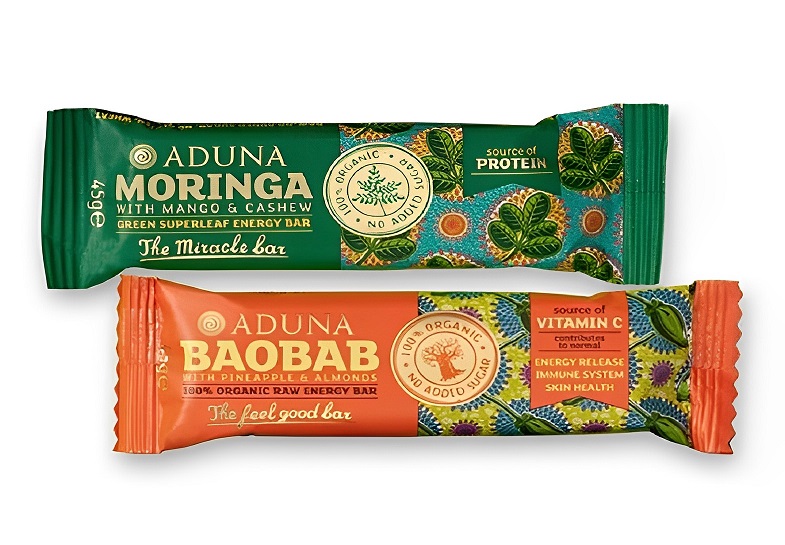 08
08From Assembly To Shipping: The Energy Bar Packaging Machine Does All
28-02-2023 -
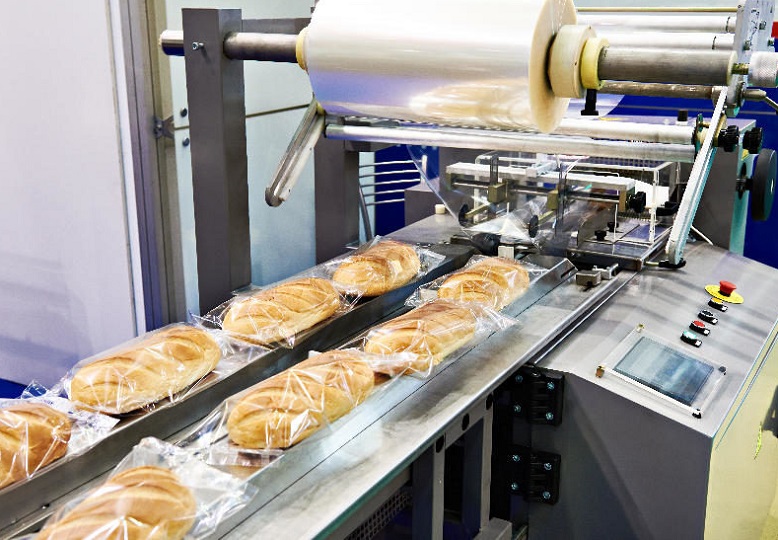 09
09Maximizing Efficiency With Food Packaging Machine Technology
22-02-2023 -
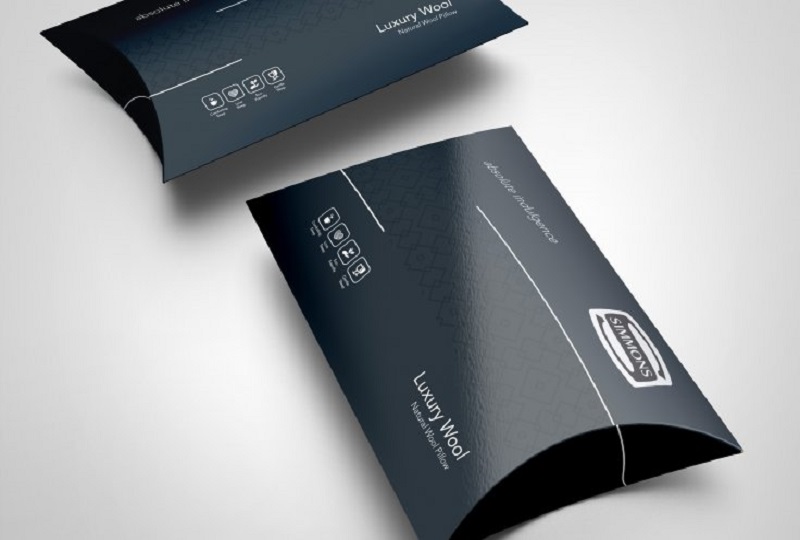 10
10Clients Hunt For Professional And Functional Packaging Machine
10-11-2022






